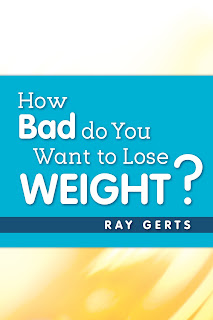I found this post on MedicalNet and I did try this and it did work for me. Eating several small meals helped me control the size of my meals. I don't know that I ate less, but I definitely wasn't hungry. You do have to eat quality food and control your calories. I kept my calories to 300 or less per meal and kept them all about the same size. Breakfast was my only exception if I had any larger meals it would be at breakfast. Breakfast is your first meal in 12 hours and I would be hungry, but if you eat a lot of protein your hunger will disappear. Read the following post and judge for yourself.
You’ve probably heard the advice that eating small meals throughout the day is how you win the battle of the bulge. The claim is that frequent snacking, as long as it’s healthy, keeps your metabolism humming, staves off hunger, and controls blood sugar. The end result: You eat less. Except it may not work that way.
You’ve probably heard the advice that eating small meals throughout the day is how you win the battle of the bulge. The claim is that frequent snacking, as long as it’s healthy, keeps your metabolism humming, staves off hunger, and controls blood sugar. The end result: You eat less. Except it may not work that way.
A study from the University of Ottawa found that on a low-calorie diet, there was no weight loss advantage to splitting calories among six meals rather than three.
A second study found that switching from three daily meals to six did not boost calorie-burning or fat loss. In fact, the researchers concluded, eating six meals a day actually made people want to eat more.
And a research review reached no conclusions about whether meal frequency helps or hurts with weight loss.
So if the number of meals you eat doesn’t make a difference with weight loss, what does?
Calories, says Kristin Kirkpatrick, RD, a wellness manager at the Cleveland Clinic. Your best bet is to cut your daily calories, regardless of how often you nosh. If you want to eat more often, you can, as long as you keep your calories in check.
The Upside of More Than 3 Meals a Day
While eating many meals may not rev up your metabolism or make you burn fat, experts say it could help you in other ways.
The longer you wait between meals, the hungrier you get, and then you’re more likely to overeat.
“After about 3 hours without food, blood sugar begins to fall. And after 4 hours, your body has already digested whatever you sent down earlier,” says Cleveland dietitian Amy Jamieson-Petonic, RD. “Once you’ve crossed the 5-hour mark, your blood sugar begins to plummet, and you grab whatever you can to refuel.”
That’s why breakfast is so important. After 7-8 hours of sleep without food, you need energy to get moving, Jamieson-Petonic says.
People who regularly eat breakfast tend to weigh less than those who skip their morning meal. They also get more nutrients like vitamins D, B12, and A. They may even be more likely to resist food cravings and make better food choices, especially when protein is part of the meal.
If you start off your day with breakfast and then continue eating every 3 to 4 hours, you’ll provide your body and brain with a steady stream of nutrients so you don’t go overboard at mealtime.
How to Snack the Right Way
If you’re going to go the mini-meals route, your biggest danger is eating too much.
“As long as you choose good foods and keep portion sizes in check, frequent grazing can help you lose weight and keep cravings at bay,” Jamieson-Petonic says. The simplest strategy is mixing portion control with protein and fiber to fill you up. Plan nutrient-dense snacks like these:
- Fresh fruit with low-fat cheese
- Raw veggies with 1/4 cup hummus or tzatziki sauce for dipping
- Whole-grain crackers with 1 ounce of low-fat cheese or one tablespoon of nut butter
- 1/4 cup trail mix with nuts, dried fruits, and whole-grain cereal
- 1 cup nonfat Greek yogurt with fresh berries
Whether you’re grazing throughout the day or having the standard three meals, getting the most nutrient bang for your calorie buck is key. So avoid “junk” foods that are easy to overeat (processed foods, refined carbs, sugary drinks).
Instead, fuel up on protein and high-fiber carbohydrates. Both fill you up without weighing you down, Kirkpatrick says.
If you have trouble controlling portion sizes, or you don’t have time to prep healthy snacks, you may be better off with the old three-meal-a-day plan.
What Matters More
The number of meals you eat doesn’t matter as much as what you eat, Kirkpatrick says.
Fill your plate with plenty of fruits and vegetables, whole grains, and lean sources of protein.
Quality, calories, and portion sizes ultimately make the difference.
-----------------------------------------------------------------------------------------------------------
I write about losing weight, how to lose weight, what foods to eat when you're trying to lose weight and exercise that will help you lose weight. I wrote an ebook that will give you all the info in one read. It's a how-to book that also tells you about the mistakes I made and how to avoid them.
My ebook is available at www.amazon.com, www.B&N.com, iBooks (download the app), kobo.com, scribd.com and many more. Price $3.99

-----------------------------------------------------------------------------------------------------------
I write about losing weight, how to lose weight, what foods to eat when you're trying to lose weight and exercise that will help you lose weight. I wrote an ebook that will give you all the info in one read. It's a how-to book that also tells you about the mistakes I made and how to avoid them.
My ebook is available at www.amazon.com, www.B&N.com, iBooks (download the app), kobo.com, scribd.com and many more. Price $3.99





